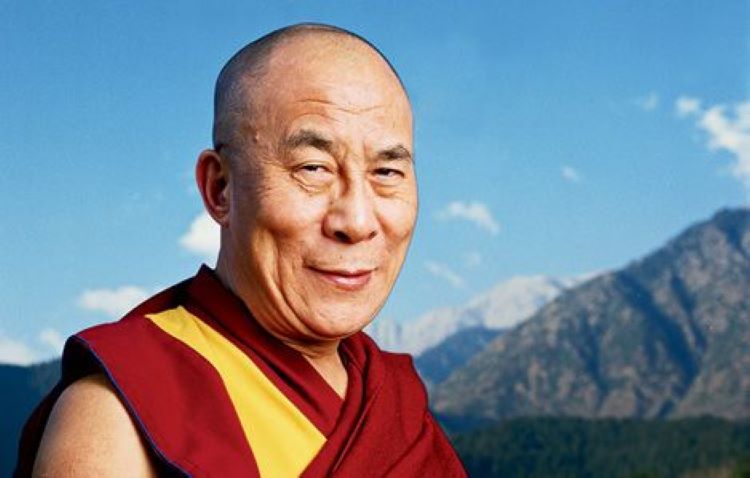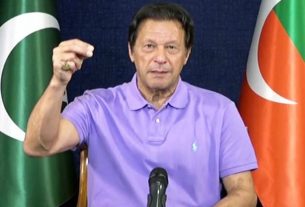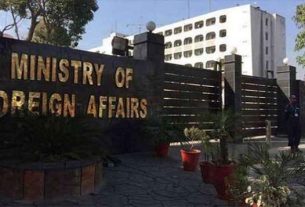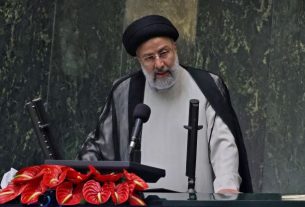NEW DELHI: A group of U.S. lawmakers met the Dalai Lama in India’s northern town of Dharamshala Wednesday, amid cheers from Tibetans in exile and an angry reaction from China, which calls the Tibetan spiritual leader a separatist and a splittist.
The visit follows the passage last week of a bill by the U.S. Congress that seeks to encourage dialogue between Beijing and Tibetan leaders in exile, who have been seeking more autonomy for Tibet. Talks with the Dalai Lama’s representatives and China stalled in 2010.
“This bill is a message to the Chinese government that we have clarity in our thinking and our understanding of this issue of the freedom of Tibet,” Nancy Pelosi, former House Speaker, said to cheers from hundreds of Tibetans whom the lawmakers addressed at a public ceremony after meeting the Dalai Lama at his residence.
U.S. President Joe Biden is expected to soon sign the legislation called “Promoting a Resolution to the Tibet-China Dispute Act,” also referred to as the Resolve Tibet Act.
In Dharamshala, where the Tibetan government in exile is based, the visit of the U.S. lawmakers brought hope. “It is a jubilant moment for all Tibetans. We are all overjoyed. The visit is very significant because it comes soon after the passage of the bill which we hope will soon be passed into law,” Tenzin Lekshay, spokesperson for the Central Tibetan Administration, told VOA.
Congressman Michael McCaul, who led the seven-member visiting delegation, said the bill reaffirms American support for what he referred to as the Tibetan right to self- determination. He said that their delegation had received a letter from the Chinese Communist Party, warning them not to visit.
Beijing said the U.S. should not sign into law the bill passed by Congress. “China will take resolute measures to firmly defend its sovereignty, security and development interests,” Chinese foreign ministry spokesman, Lin Jian said on Tuesday, as the lawmakers arrived in the Indian town.
The Chinese embassy in New Delhi reiterated Beijing’s concerns. “We urge the U.S. side to fully recognize the anti-China separatist nature of the Dalai group, honor the commitments the U.S. has made to China on issues related to Xizang, stop sending the wrong signal to the world,” it said in a statement Tuesday night. Xizang is China’s name for Tibet.
In his remarks to Tibetans, McCaul said it is important that China not influence the choice of the Dalai Lama’s successor. “Beijing has even attempted to insert itself into choosing the successor of the Dalai Lama,” he said. “We will not let that happen.”
The issue is contentious. China says it has the right to approve the spiritual leader’s successor while according to Tibetan tradition, the Dalai Lama is reincarnated after his death. The Dalai Lama has said his successor is likely to be found in India but Tibetans in exile fear China will try to designate a person to be the successor, in an effort to bolster control over Tibet.
Meanwhile, Tibetan spokesman Lekshay said China needs to come forward to reinstate a dialogue with exiled Tibetan leaders. “It is a time for introspection for China to see what is going wrong, particularly with the Tibet issue which has been a longstanding conflict. China needs to be more positive.”
Beijing does not recognize the exiled administration. A formal dialogue process between the Dalai Lama’s representatives and the Chinese government ended in 2010 after it failed to produce a concrete outcome.
Pointing out that they are asking for autonomy within China and not independence, Lekshay said the Tibetan administration in exile did not represent a separatist movement.
Tibetans in exile say they fear that their culture, language and identity is under threat due to Chinese assimilation of the region.
The Dalai Lama, who fled to India in 1959, has been instrumental in putting the Tibetan cause in the global spotlight but in recent years some Tibetan activists have expressed concerns that the Tibet cause is not getting appropriate attention in Western capitals.
The Himalayan town of Dharamshala has been the Dalai Lama’s home since he fled Tibet over six decades ago following a failed uprising against Chinese rule.__VOA News





